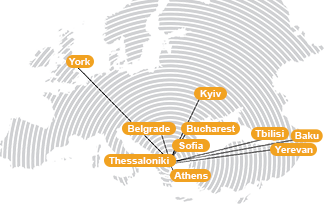ODYSSEUS aims to increase the knowledge on explosive precursors and homemade explosives (HMEs), including precursors not previously studied, and develop effective and efficient prognostic, detection, and forensic tools to improve the capabilities of LEAs towards the prevention, countering, and investigation of terrorist incidents involving HMEs. ODYSSEUS will build upon relevant previous projects mainly HOMER, through the involvement of HOMER’s core partners in this consortium and will thus continue the work already done in HOMER on some precursors and further extend it to not previously studied precursors.
To discover potentially hitherto unknown information, online HMEs recipes will be collected, and their content will be analysed so as to extract knowledge about (possibly unknown) precursors and HMEs. Selected precursors will be then characterised and analysed for determining their explosive properties, feasibility, and potential for becoming a threat. This knowledge will be leveraged for developing tools for(i) chemical supply chain monitoring for irregularity detection to enable prediction and localisation of potential threats; (ii) advanced sensors for detecting in (near) real-time explosive precursors through air emissions and sewerage networks; (iii) robotised tools for improved mobile detection and in-situ forensic support; and (iv) automated threat detection, localisation, and assessment; these tools will be integrated into a configurable platform that will assist LEAs’ operations in diverse scenarios.
ODYSSEUS will be validated in lab and field tests and demonstrations in three operational use cases. Extensive training of LEAs' personnel, hands-on experience, joint exercises, and training material will boost the uptake of ODYSSEUS tools and technologies. With a Consortium of 4 LEAs, 9 Research/Academic partners, and 5 industry partners, ODYSSEUS delivers a strong representation of the challenges, requirements and tools to meet its objectives.






